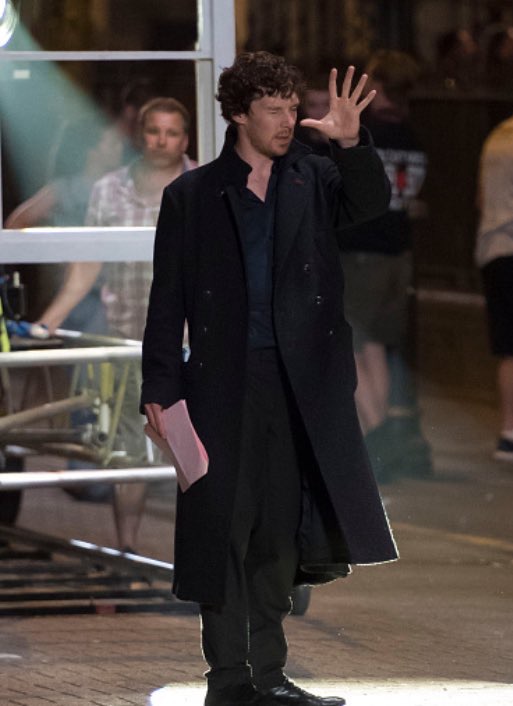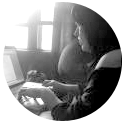Acting Like A Pork Chop
 People who have met me may not be surprised that I have an acting background. It’s nothing to get excited about—university Drama and five years of Fringe shows do not Helen Mirren make—but it’s paid off writing-wise in strange ways.
People who have met me may not be surprised that I have an acting background. It’s nothing to get excited about—university Drama and five years of Fringe shows do not Helen Mirren make—but it’s paid off writing-wise in strange ways.
Like writing, acting has taught me that humour is hugely subjective. Some people will find you hilarious even when you feel like you're just doing an excellent impression of a surfboard. Conversely, you can be putting Bill Bailey to shame and some people will still think you suck.
The fickleness of one’s audience is not, therefore, unique to writing as a creative pursuit. (I will tackle this in an upcoming post, so we shall move on.)
In my mind, the primary thing that glues acting and writing together is dialogue. Although a great actor can deliver a clunky line convincingly, it helps tremendously if it sounds like something someone would actually say in real life.
Let's experiment! Try this line out loud:
“Shane, I knew you were not one to be trusted, especially after you managed to overthrow the prison guards that dark and starry evening despite your shrivelled hand which was the unfortunate by-product of your ne’er-do-well experiments in Mr Casey’s secret underground laboratory.”
Even Benedict Cumberbatch would have issues with that one. (As a side movie-related note, though a Benedict-less one, Inception is a very good theory lesson for writers; interesting execution with some of the most unwieldy dialogue you’ve ever heard. The whole cast has 'WTF did I just say?' faces at least once. But I digress.)
You've probably heard that reading your whole piece out loud is a great way to get a feel for it. It's true, and it’s especially true for dialogue. Even if you can’t narrate all 142,459 words of your sci-fi masterpiece—for who has the time and/or vocal cords?—just do it for the dialogue. You will very quickly pick the difference between “I just cannot believe that Steven would have committed such an audacious act,” and “I can’t believe Steve’s audacity.”
Ready to take it a little bit further? Act out your scene. Yes, you will feel like a berk the first time you do it, and it’s better to be at home alone rather than at a cafe, but it will help you more than you’d think. Can your character have actually walked from here to there while saying this line? Can you actually pick up more than two oranges with one hand? Is it possible to actually have an intimate conversation with someone while cantering across the moors?
OK, that last one may be difficult to verify unless you have a couple of horses to hand but just the simple act of moving around will not only help you work out if the scene is physically possible but will also often give you natural physical reactions that you may not have thought of while chained to your desk.
An excellent example of how an author failed to work through their scene's plausibility is from my old book club. One book clubber revealed that a pivotal love scene in our current read had confused her so much that she got up and walked through the steps described. In addition to providing her husband with some entertainment, it also proved that the hero could not have seduced the heroine as described, for one simple reason: he did not have three arms.
The reader also revealed that at this point she would have abandoned this book for good—I threw mine across the room when I’d finished it; no, I won't tell you what it was—had she not had to finish it for said book club.
As a writer, this is anathema. Don’t give your reader material which makes them pause, frown, re-read, and then start Googling. Don’t give them material to turn Book Club Night into Mime Night.
Because if you give your reader an excuse to stop reading, they may not pick your book up again*.
* Though they may act out scenes from it in a pub, to the bemusement of staff and patrons.
Want more publishing insights, writing tips, or just general book-related gossip? Just click here to sign up for my e.newsletter!






